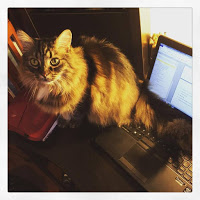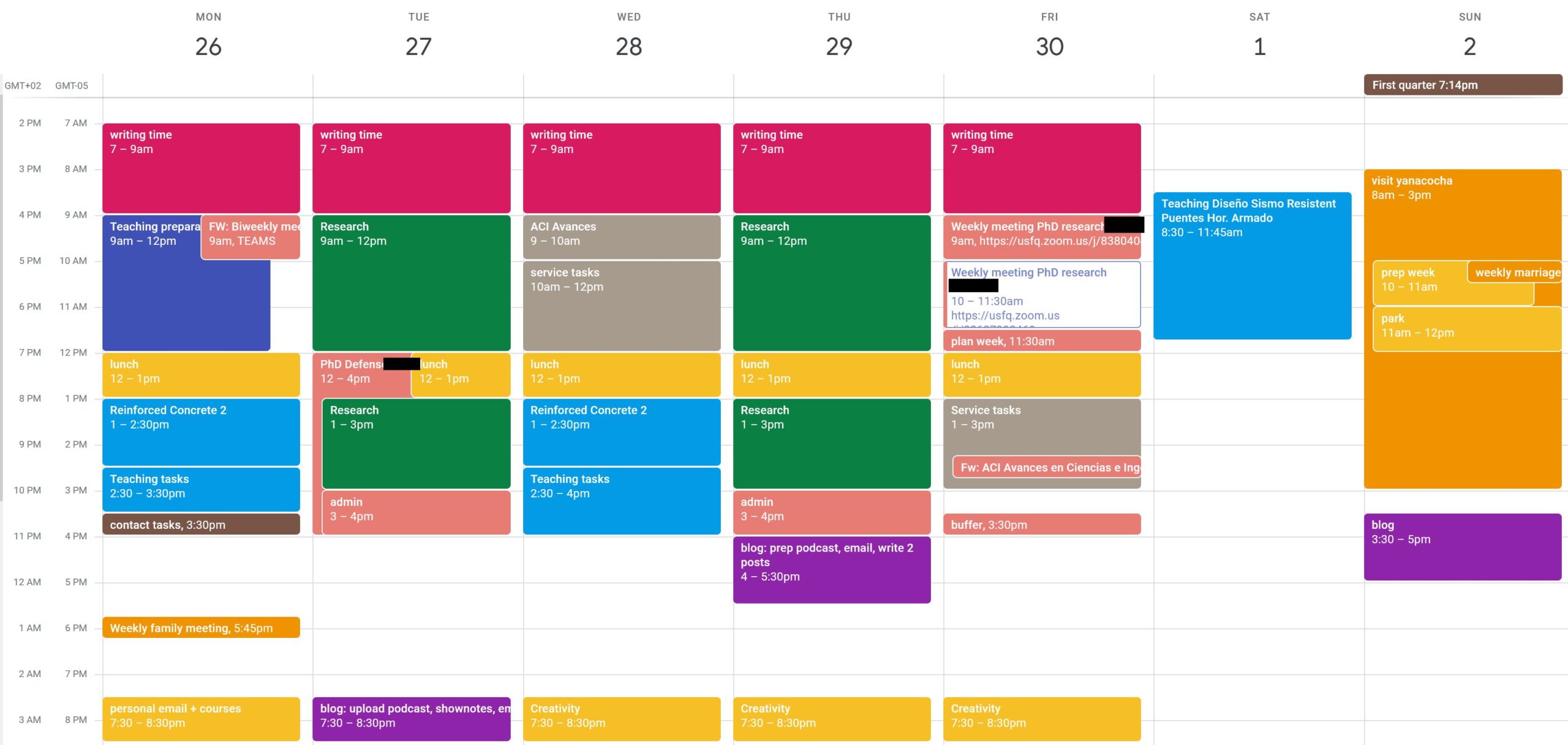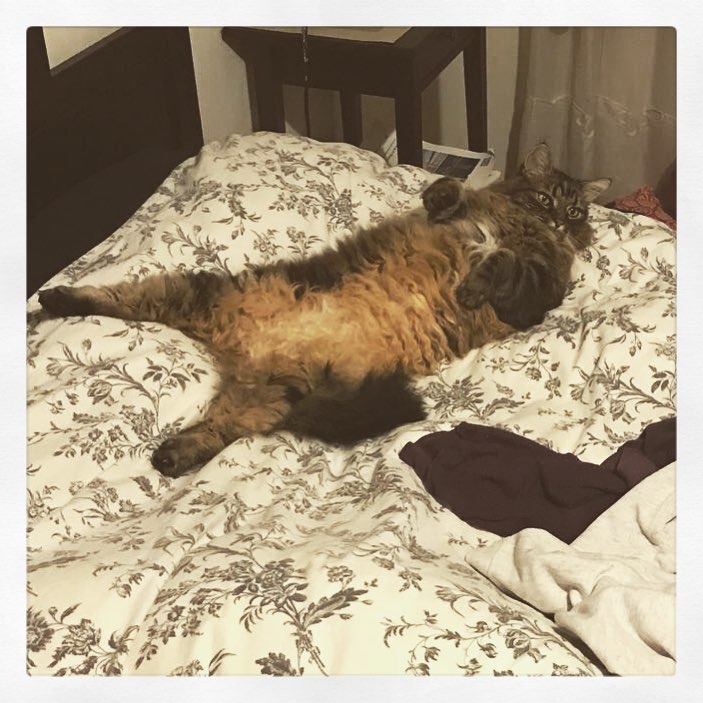
Think day on neurodivergence
I recently spent some time thinking about the role of being neurodivergent in academia. I used ChatGPT to help me with the prompts, which you can find below:
1. Setting the Intention (15 minutes)
- Objective: Create a focused mindset for the session by clarifying your goals.
- Journaling Prompts:
- “What draws me to explore the topic of being an autistic researcher today?”
- “What emotions am I feeling as I begin this session?”
- “What specific questions or concerns do I want to address during this time?”
- “How do I want to feel at the end of this session?”
- Activity: Write freely in response to these prompts. Allow yourself to express any initial thoughts or feelings. This part is about setting a tone and intention, acknowledging both curiosity and any apprehension you might have.
2. Exploring Strengths and Challenges (45 minutes)
- Objective: Gain insight into how being an autistic researcher influences your work, both positively and negatively.
- Journaling Prompts:
- Strengths (20 minutes):
- “In what ways does my autism enhance my research skills? (e.g., attention to detail, unique problem-solving approaches)”
- “Can I recall a moment in my research where I felt my autistic traits gave me an advantage?”
- “How do my sensory sensitivities contribute to my perception and understanding of research topics?”
- “What aspects of my work do I find particularly fulfilling because of my autistic traits?”
- Challenges (25 minutes):
- “What specific challenges do I face in the academic or research environment? (e.g., social interactions, sensory overload)”
- “How do these challenges impact my day-to-day work? Are there specific scenarios where I feel more strain?”
- “Have there been times when my work environment or expectations conflicted with my needs? How did I handle these situations?”
- “How do I typically respond to stressors in my research work, and what might be underlying those responses?”
- Strengths (20 minutes):
- Activity: This section involves deep self-reflection. Be candid with yourself and write without filtering. Aim to understand your experiences without judgment, simply noting what comes up.
3. Short Break (10 minutes)
- Objective: Clear your mind and recharge before diving into the next part of the session.
- Activity: Step away from journaling. Use this time to do something that relaxes you. Options include:
- Stretching exercises
- Listening to a favorite song
- Practicing a brief guided breathing exercise
- Note: The goal is to reset your focus and avoid mental fatigue.
4. Strategies for Success (50 minutes)
- Objective: Identify and develop strategies to enhance your working experience as an autistic researcher.
- Journaling Prompts:
- Current Strategies (20 minutes):
- “What routines or strategies have I already implemented to support my research work?”
- “Which of these strategies have been most effective, and why do they work for me?”
- “Are there adjustments I’ve made to my work environment that have helped reduce sensory overload?”
- “How do I currently manage social interactions or collaborations in my work?”
- New Ideas (30 minutes):
- “What aspects of my work would benefit from a new approach or routine? (e.g., managing deadlines, enhancing focus)”
- “Are there tools or practices I’ve heard about that I’m curious to try? (e.g., noise-canceling headphones, time-blocking techniques)”
- “How can I communicate my needs more effectively to colleagues or supervisors?”
- “What small changes could I make to my workspace to make it more accommodating?”
- “How can I create a sensory-friendly work routine that aligns with my natural rhythms?”
- Current Strategies (20 minutes):
- Activity: Write down as many strategies and ideas as come to mind, both those you’ve tried and new ones you want to explore. Consider this a brainstorming session where all ideas are welcome. Don’t worry about feasibility at this stage—focus on capturing possibilities.
5. Break (10 minutes)
- Objective: Take another mental break to avoid fatigue and maintain focus.
- Activity: Engage in a mindful activity to recharge:
- Take a short walk to get fresh air.
- Practice mindfulness by focusing on a simple task, like sipping a cup of tea mindfully or observing your surroundings.
- Note: Choose something that gives your mind a rest from the intensity of self-reflection.
6. Developing an Action Plan (35 minutes)
- Objective: Create a structured plan to implement strategies and enhance your work life.
- Journaling Prompts:
- “What specific actions can I take in the next week to start applying what I’ve reflected on today?”
- “What small changes can I make immediately, and what requires more planning?”
- “How will I measure the success of these changes?”
- “What longer-term goals can I set for myself to support my work as an autistic researcher?”
- “Who can I reach out to for support or guidance as I implement these changes?”
- Activity: Create a list or outline of actionable steps. Break these down into:
- Short-Term Actions: Small, immediate steps you can take this week.
- Long-Term Goals: Larger changes that may need time and planning (e.g., advocating for accommodations).
- Consider adding deadlines or checkpoints to review your progress. This action plan will serve as a roadmap to integrate the insights you’ve gained.
7. Reflection and Future Planning (15 minutes)
- Objective: Reflect on the session’s impact and plan for ongoing reflection and growth.
- Journaling Prompts:
- “What have I learned about myself during this think day?”
- “Which insights or strategies do I feel most excited to explore further?”
- “How can I incorporate regular reflection into my routine to continue this growth?”
- “What support or resources do I need to help me on this journey?”
- “How can I celebrate my successes along the way?”
- Activity: Summarize your thoughts and feelings at the end of this session. Write a commitment statement to yourself about one key change or practice you want to prioritize moving forward. Consider how you will make time for regular journaling or reflection to continue supporting your development.
Share with your peers!



